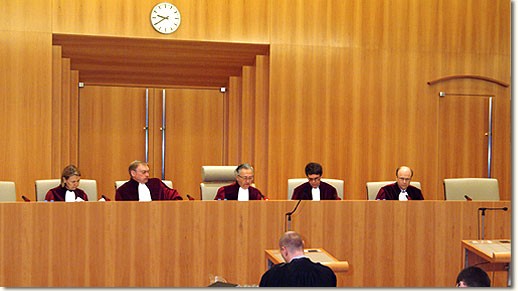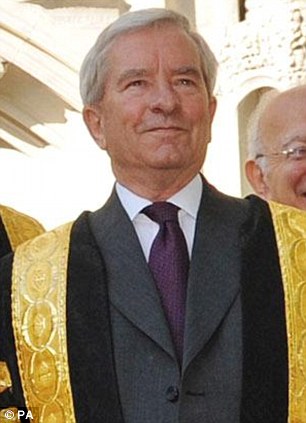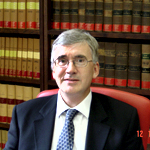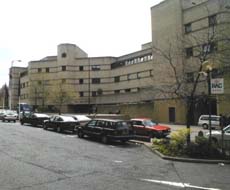Law Weblog
ECJ allows ban on internet gambling
Saturday 5 June 2010 at 10:26 am | In News | Post Comment The European Court of Justice (ECJ) has ruled that European countries are within their rights to create gambling monopolies and to ban internet gambling companies from other EU countries operating.They said that though the EU is fundamentally a trading bloc founded on the principle of free trade between members, countries could restrict the gambling trade if they did it in a consistent way and to protect the interests of their citizens.
The Netherlands bans gambling except that conducted by one licensed operator in each of two markets: sports and lottery betting, and a horse racing totalisation service.
“Betfair” owner “Sporting Exchange” argued that it should be allowed to operate in the Netherlands and that EU free trade laws mean that it should not have to be regulated in the Netherlands when it had already been regulated in the UK.
The ECJ acknowledged held that while Article 49 of the EC Treaty outlawed restrictions on the freedom to trade across borders, Article 46 of that Treaty permits exceptions to it.
“[Article 46] allows restrictions justified on grounds of public policy, public security or public health,” said the ruling. “A certain number of overriding reasons in the public interest which may also justify such restrictions have been recognised by the case-law of the Court, including, in particular, the objectives of consumer protection and the prevention of both fraud and incitement to squander money on gambling, as well as the general need to preserve public order.”
“In that context, moral, religious or cultural factors, as well as the morally and financially harmful consequences for the individual and for society associated with betting and gaming, may serve to justify a margin of discretion for the national authorities, sufficient to enable them to determine what is required in order to ensure consumer protection and the preservation of public order,” it said.
But countries had to make sure that they could justify their decision.
“The Member States are free to set the objectives of their policy on betting and gambling according to their own scale of values and, where appropriate, to define in detail the level of protection sought. The restrictive measures that they impose must, however, satisfy the conditions laid down in the case-law of the Court, in particular as regards their proportionality”
Betfair argued that it should be able to operate in the Netherlands using its UK licence, but the Court said that this was not true in the case of the online betting industry.
“It should be noted in that regard that the internet gaming industry has not been the subject of harmonisation within the European Union”
“A Member State is therefore entitled to take the view that the mere fact that an operator such as Betfair lawfully offers services in that sector via the internet in another Member State, in which it is established and where it is in principle already subject to statutory conditions and controls on the part of the competent authorities in that State, cannot be regarded as amounting to a sufficient assurance that national consumers will be protected against the risks of fraud and crime, in the light of the difficulties liable to be encountered in such a context by the authorities of the Member State of establishment in assessing the professional qualities and integrity of operators.”
The Court said that a previous case involving online gambling firm Bwin had established that Internet betting was inherently more risky for consumers than shop-based betting.
“Because of the lack of direct contact between consumer and operator, games of chance accessible via the Internet involve different and more substantial risks of fraud by operators against consumers compared with the traditional markets for such games”
Rape suspects, anger by campaigners
Friday 4 June 2010 at 8:50 am | In News | Post Comment There was anger from campaigners last month when the coalition agreement, drawn up by the Tories and Liberal Democrats, included the pledge to keep the identity of rape suspects secret. It would have reinstated the anonymity rules repealed 12 years ago.At the time the measure was revealed, government sources suggested anonymity would only be lifted after a defendant had been through the courts and convicted. But speaking at his first Prime Minister’s questions, David Cameron suggested the new rules may only hide the identity of defendants until they were formally charged.
Women’s groups had argued the proposals would stop other rape victims coming forward, setting back plans to improve low conviction rates in rape trials. In a shift that appeared to pave the way for significantly watering down the scope of the anonymity changes, Mr Cameron conceded publicity around court cases can help bring other people who have been raped forward.
Despite welcoming the apparent clarification of the plans, the women’s rights campaign group, the Fawcett Society, warned even smaller reforms would be a step backwards.
Home Office legislative programme announced
Monday 31 May 2010 at 7:08 am | In News | Post Comment Three bills relate to Home Office business announced in the Queen’s Speech:- Identity Documents Bill
- Police Reform and Social Responsibility Bill
- Freedom (Great Repeal) Bill
In addition, the speech announced that an annual limit will be introduced on the number of non-European Union economic immigrants entering the UK. The government has already announced plans to bring an end to the detention of children for immigration purposes.
Identity Documents Bill
If enacted, this bill will scrap identity cards, and require the destruction of all personal information gathered from existing cardholders and currently held in the National Identity Register.
Police Reform and Social Responsibility Bill
This bill will make the police service more accountable to the public. It will create a dedicated border police force and set out measures to tackle alcohol-related violence and disorder.
Its measures include:
- directly electing individuals to increase police accountability to local people
- amending health and safety laws to ensure that they don’t stand in the way of policing
- improving and strengthening immigration controls
- providing stronger powers to tackle alcohol-fuelled crime
Freedom (Great Repeal) Bill
This bill will ‘roll back the state’ and reduce the influence of government on citizens.
Among its proposals are:
- increased protection for those on the DNA database
- a restoration of rights to non-violent protest
- enhanced regulation of CCTV use
The Role of Judges – 12 years, one case
Thursday 27 May 2010 at 7:13 am | In News | 1 Comment The Saville report of the Bloody Sunday Inquiry will be published on June 15. Established in 1998, Lord Seville’s re-examination of the events on Bloody Sunday is the longest and at £160m the most expensive state inquiry in British history. Lord Mark Saville of Newdigate (the brilliant Law Lord who has been absent from the Lords and Supreme Court for 12 years) has been assisted by judges William Hoyt, from Canada, and John Toohey from Australia. It opened with a 42-day speech by counsel to the inquiry, the longest on record.The inquiry into the 1972 killings was launched by former Prime Minister Tony Blair in 1998. It lasted until 2004, hearing 900 witnesses and costing some 200 million pounds. Members of the families of those who died or were injured on the day, and for the soldiers most directly involved, to see the report privately … some hours before the report is published.
Called ‘Bloody Sunday’ because on Sunday 30 January 1972, thirteen people were killed when soldiers opened fire in the nationalist Bogside area of the Belfast. A 14th victim later died from wounds.
The troops said they shot at people armed with guns or nail bombs. An original 1972 investigation exonerated the paratroopers who shot marchers at a civil rights demonstration in Londonderry, the province’s second city.
Bloody Sunday was one of the most traumatic events in Northern Ireland’s 30-year “Troubles,” fuelling suspicion of the authorities among the Catholic minority and prompting dozens to join the IRA’s violent campaign against British rule.
This is the second report, the original inquiry into the incident, carried out by then Lord Chief Justice Lord Widgery, was a whitewash.
The Widgery report, which was compiled in the months after the shootings, exonerated the soldiers who fired the fatal shots and speculated that a number of the dead had been either firing at or nailbombing the Army. The allegations have always been vehemently denied by the relatives and many other eyewitnesses, who insisted the dead were unarmed.
Wednesday 12 May 2010 at 12:26 pm | In News | Post Comment Kenneth Clarke, former Conservative chancellor of the exchequer, will be the justice secretary in the new Conservative-led coalition government.
Lord Justice Richards again questioned over sexual claims
Wednesday 12 May 2010 at 4:19 am | In News | Post Comment The Times reports that Lord Justice Stephen Richards aged 59, one of the UK’s most senior judges was arrested for another sexual offence last autumn, but prosecutors ruled there was insufficient evidence to take the case to trial. Richards was also cleared of exposing himself on a train three years ago.The Mail reported on Monday that the judge was questioned over claims by a woman in her 30s that a man rubbed himself against her during a journey.
It is understood witnesses gave conflicting descriptions of the man responsible and accounts of what happened.
A spokeswoman for the Judicial Communications Office said: “In September 2009 Lord Justice Richards was arrested by the British Transport police. He immediately informed the Lord Chief Justice and agreed not to sit until the investigation was over. He was neither charged nor cautioned. Towards the end of October he was informed that no proceedings would be taken against him. Thereafter he resumed his duties. The judge has nothing further to say on the matter.”
Barristers to change relationship with solicitors
Wednesday 12 May 2010 at 3:27 am | In News | 1 Comment Barristers are seeking to change the rules that prevent them suing solicitors for unpaid fees.Proposed contractual terms would set out a basic legal position of both parties, dealing with matters including the proper and prompt execution of work.
The proposals will have to be approved by the Legal Services Board. Barristers and solicitors will continue to be free to agree their own terms, the new contractual provisions being a default position..
At present barristers the only actions that barristers can take against defaulting solicitors are to make a complaint to the Solicitors Regulation Authority or put the solicitor on a ‘black list’ until the payment is made.
Funding legal services – election promises
Wednesday 28 April 2010 at 4:59 am | In News | Post Comment The £2.1bn annual legal aid budget is to be reviewed under manifesto commitments made by both Labour and the Tories. The Bar Council says changes already announced could lead to senior advocates abandoning legal aid work, as the gross hourly rate for a defence barrister with 10 years’ experience acting for a client in a robbery case is due to fall from about £50 an hour to about £30.
The £2.1bn annual legal aid budget is to be reviewed under manifesto commitments made by both Labour and the Tories. The Bar Council says changes already announced could lead to senior advocates abandoning legal aid work, as the gross hourly rate for a defence barrister with 10 years’ experience acting for a client in a robbery case is due to fall from about £50 an hour to about £30.
Not only the rate of pay for lawyers but also the court facilities themselves are under funding pressures. None of the three main parties is committed to addressing concerns about the effect on communities of closures of magistrates’ courts.
Labour’s manifesto promises greater savings in the legal aid and court systems to “help protect frontline services”.
The Conservatives and Liberal Democrats attack Labour’s record on closing courts, but both stop short of pledging to reopen any of them.
Judge alone trial causing concern
Sunday 25 April 2010 at 5:49 am | In News | Post Comment The conviction this month of four men without a jury has continued to cause concern. Media organisations, including The Times, are to challenge a “public interest immunity” provision under which evidence is kept secret even though the trial has ended.Four men were found guilty by a single judge of a £1.75 million armed robbery at Heathrow in 2004, they had hoped to have stolen £10million. Two previous trials juries failed to reach verdicts a third was stopped because of jury tampering.
The trial at the Old Bailey was the first to use controversial provisions of the Criminal Justice Act 2003 that allow for trial by a judge sitting alone when there is a danger of jury tampering.
It is expected that other cases will follow the first trial without a jury in 400 years. Parallel measures for judge-alone trials in fraud cases are on the statute book but not in force.
Shami Chakrabarti, director of Liberty said: “Jury trial has been an age-old method of boosting confidence and legitimacy in the criminal justice system. Without it, the professional classes appear to sit in permanent judgment over ordinary people.”
The men were convicted for tying up and holding at gunpoint 16 terrified employees and subjecting them to a frightening and violent attack.
The decision to allow a trial without a jury in the Heathrow case was taken by the Court of Appeal in June 2009. It followed an investigation by the Metropolitan Police’s Flying Squad, which found that “approaches” had been made to two members of the jury in the third trial arising from the robbery. Because of sensitivity and risks, defence teams have never been allowed to know what the jury tampering evidence is.
Paul Mendelle, QC, chairman of the Criminal Bar Association, said that trial by jury was a fundamental constitutional right dating back 800 years, he believes that cost is the reason for the removal of the right. It has been estimated that providing protection for the jury would cost in the region of £6 million and need more than 82 police officers, but a trial with only a judge would cost £1.6 million and require only 32 officers.
The latest trial lasted less than three months or roughly half the time it would have taken with a jury. The judge Mr Justice Treacy sitting alone, deliberated for 12 days.
The judge sentenced the four men to, life, 20 years, 17 years and 15 years.
Crown Court to work shifts
Friday 16 April 2010 at 11:43 am | In News | Post Comment As from June 2010, the Crown Court sitting in Croydon is to test the concept of double shift court sittings for a period of six months up to the end of the calendar year.The project will operate in two of the ten courts, Courts 3 and 5. There will be two separate shifts in each of the two courtrooms – meaning two trials running concurrently on any given day.
The first shift will commence at 9am and go through to 1.30pm. The second shift will commence at 2pm and go through to 6.30pm. There will be a break in the middle of each shift.
Powered by WordPress with Pool theme design by Borja Fernandez.
Entries and comments feeds.
Valid XHTML and CSS. ^Top^








